World Humanitarian Day 2023
Posted in: Days of Observance
August 19 commemorates the annual World Humanitarian Day, a global observance of the violence, challenges, changes and hazards millions of civilians and volunteers in conflict-affected countries face every day with bravery, resilience, selflessness and sacrifice.
Unfortunately, in many cities and countries around the world, refugees and civilians fight for their lives, struggle to find shelter, and are desperate for food and water for their families. Fighting, political conflict and natural disasters drive millions from their homes, destroy schools and health facilities, separate families and change lives forever. For the men, women and children torn apart, endangered and targeted every day as their reality crumbles around them, the future can look bitterly bleak — but there is still hope.
In an uncertain world, there are still those who risk their comforts and freedom in safer corners of the globe to take action and bring assistance to those in need. Every year, health care workers, volunteers, members of nonprofit agencies and other humanitarian aid workers from around the world work to provide resources, support and second chances for the staggering 141.1 million individuals in crisis across 37 countries, putting themselves in harm’s way to bring sustenance, shelter and something much more valuable to people in peril — hope.
This World Humanitarian Day, we reach out to those in conflict and recognize the courage of the men and women who come to their aid.
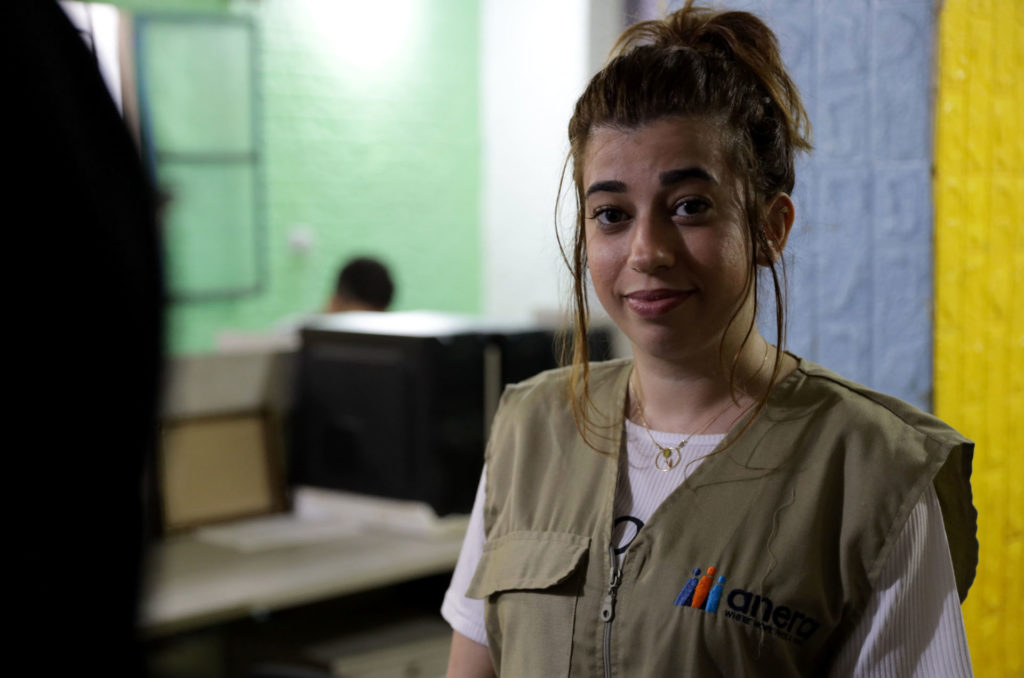

The History of National Humanitarian Day
In December 2008, the General Assembly of the United Nations convened to discuss a crucial issue in the modern world — the rallying response of so many humanitarian workers to the unfortunate, overwhelming occurrence of disaster, tragedy, terrorism and conflict threatening civilians, tearing apart nations and taking lives in so many countries.
Their inspiration? The tireless efforts of the Sergio Vieira de Mello Foundation in collaboration with the Swedish, French, Japanese and Brazilian ambassadors to make a movement for recognition of emergency humanitarian aid, worldwide humanitarian assistance and ongoing humanitarian projects.
A champion for human rights and humanitarian aid for more than 30 years during his time as Special Representative of the Secretary-General to Iraq and United Nations High Commissioner for Human Rights, Sergio Vieira de Mello dedicated a lifetime to the noble pursuits of:
- Serving civilians in challenging, conflict-ridden situations
- Alleviating suffering in crisis
- Lending a voice to victims of violence
- Championing for both attention and relief for people in peril
With his efforts and actions, de Mello gave more than just his time to struggling civilians and sufferers of armed violence — he also gave his life.
After this U.N. High Commissioner and 21 colleagues lost their lives in the 2003 Canal Hotel Bombing in Baghdad, the Vieira de Mello family and several close friends formed the Sergio Vieira de Mello Foundation to continue his mission, establish stronger dialogues and endeavors to assist in humanitarian crises, and carry on a legacy of ongoing effort and appreciation for the thousands of humanitarian workers who sacrifice for similar causes each day.
To commemorate both the High Commissioner and all humanitarian organizations as well as recognize the needs of fellow humans in crisis, the United Nations General Assembly established World Humanitarian Day, an international observation of humanitarian crises and aid efforts. Commemorated for the first time on August 19, 2009 — the anniversary of the Canal Hotel Bombing — the World Humanitarian Day tradition has continued year after year, each with a particular theme to emphasize current issues, increase awareness and inspire action.
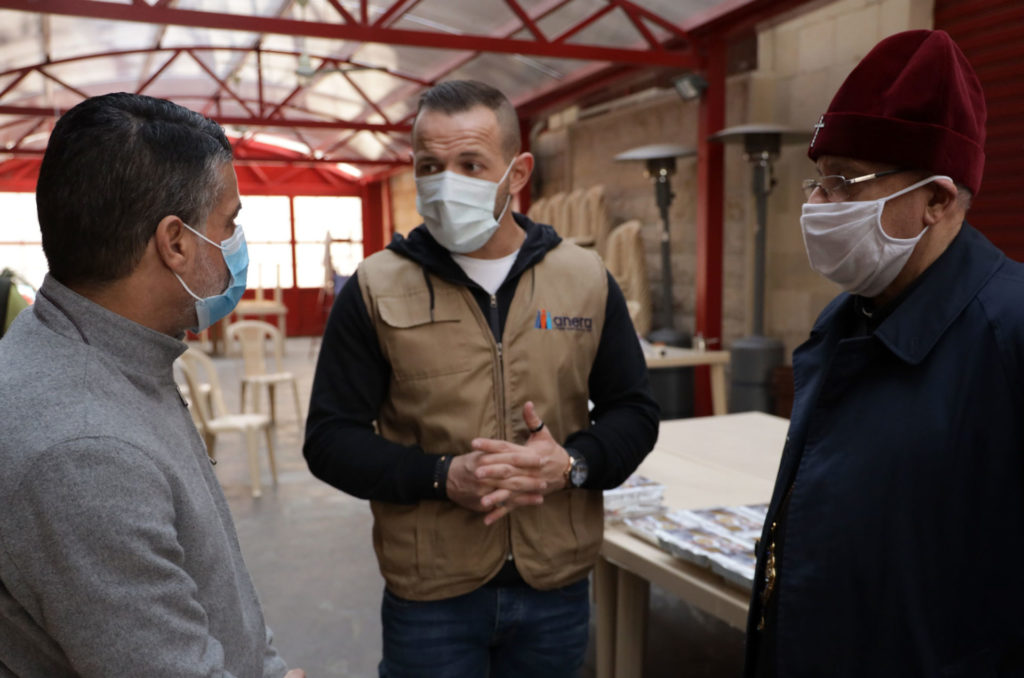

World Humanitarian Day 2023: #NoMatterWhat
The 2022 World Humanitarian Day Theme: #ItTakesAVillage
In 2022, the UN is observing August 19th by reflecting on the communal nature of humanitarian work. Efforts at delivering aid and relief to those made vulnerable by natural disasters, conflict or dire economic circumstances are a shared endeavor.
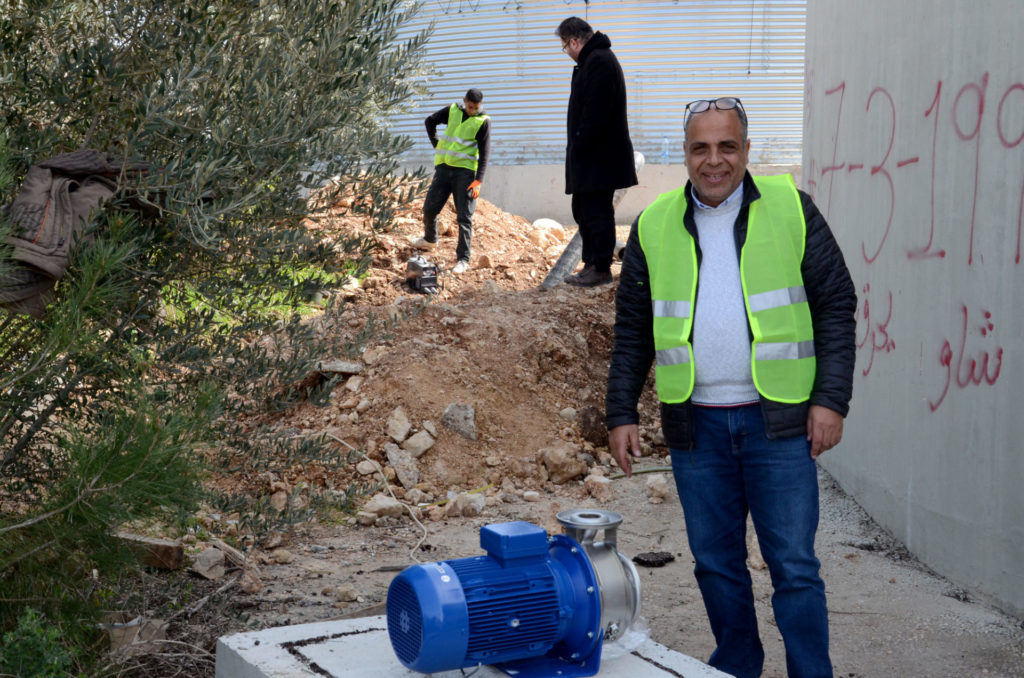

What do Humanitarian Workers Do?
Providing food and water: Clean water and access to food is hard to find in many areas of the world, even for impoverished individuals in more developed countries. Humanitarian groups often work to obtain and distribute food and water to people in need. Here at Anera, we repair wells, install water filtration systems, erect reservoirs and renovate sewage systems to help hundreds of thousands of people in the Middle East access clean water.
Improving food security: Food insecurity is a major problem in countries suffering from the effects of climate change or civil strife. Humanitarian workers address these problems in a variety of ways, from distributing food to planting gardens. Anera helps farmers increase yields for crop sustainability, delivers food parcels and hot meals to families in need, and distributes food vouchers for local stores.
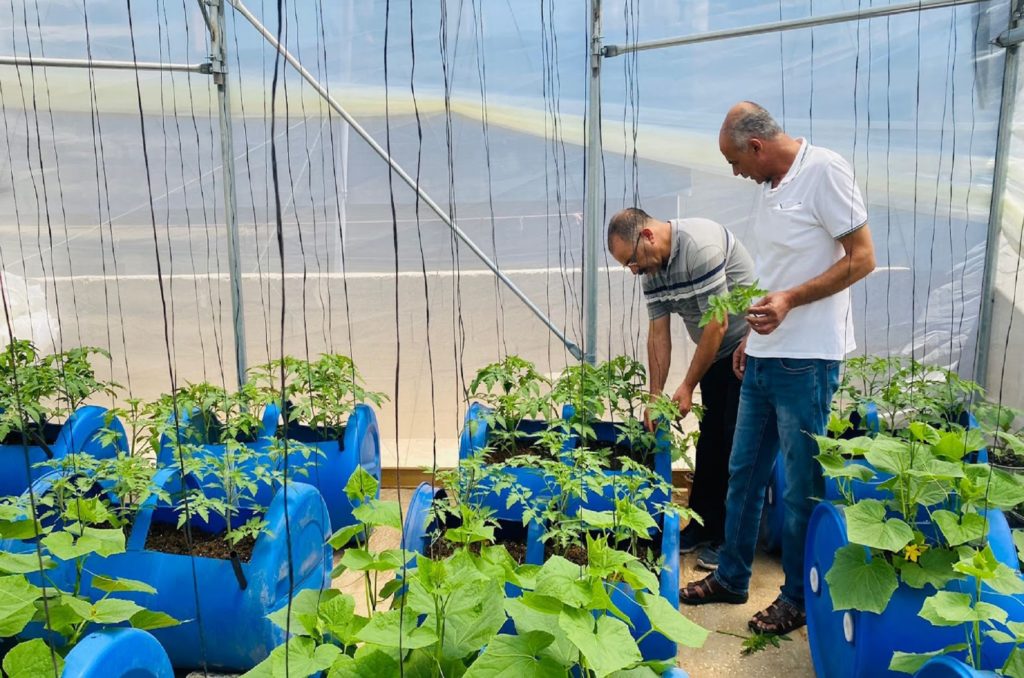

Increasing access to education: Often young people’s education is disrupted by humanitarian crises that cause them to drop out of school and give up on their dreams for the future. Humanitarian organizations like Anera often help children and young adults keep pursuing education. Anera’s programs, for instance, increase access to learning, from preschool to vocational school. Other goals of Anera’s education programs include building or repairing schools and creating supportive environments for children.
Organizing healthcare services: Aid workers might distribute medicine, help improve hospital infrastructure or deliver hygiene kits to reduce the spread of illness and improve health outcomes. This is one of Anera’s major humanitarian response areas in Palestine, Lebanon and Jordan, where medical supplies are often depleted and infrastructure is poor, because of lack of resources.
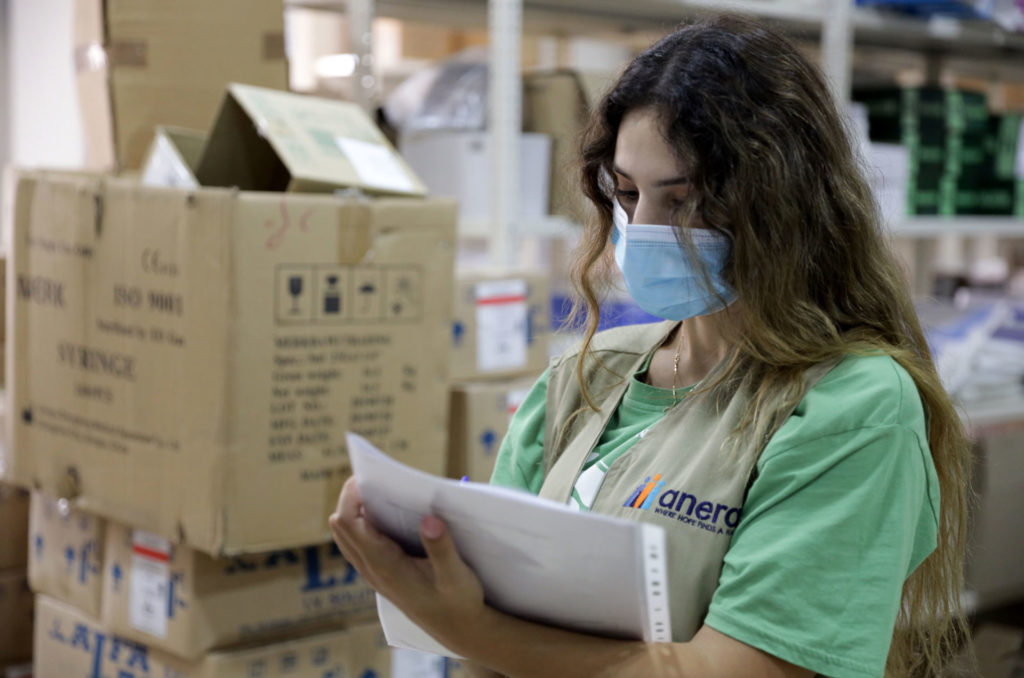

Securing shelter: From refugees to abuse victims to the homeless, many people benefit from the shelter that humanitarian aid workers can help secure. They may help build housing, organize living situations or break down barriers to accessing shelter. After the devastating Beirut port explosion in 2020, Anera and other organizations helped rebuild and restore apartments damaged by the blast so that people could return to their homes.
What Is Done on World Humanitarian Day?
Each World Humanitarian Day is an opportunity not only to appreciate and commemorate the sacrifices and struggles of humanitarian workers and those they strive to protect but also to educate ourselves on current conflicts, understand the troubling realities beyond our doorsteps, and take action to effect change.
Natural disasters, social and political disputes, armed conflicts and other perils put billions of people in crisis across the world. With conflicts becoming more complicated, refugee numbers constantly climbing, resources running out and grave dangers multiplying in Syria, Palestine, Uganda, Sudan and so many other countries, civilians are more desperate than ever for food, water, shelter, medical care, schooling, sanitation and safe passage. Dedicated to providing resources, protection and new possibilities for those in need, humanitarian workers strive to deliver assistance at great personal risk.
While humanitarian assistance is at an all-time high — totaling a new high of $28 billion in international efforts in 2015 — so is the cost of courage and compassion. The humanitarian field is fraught with hazards, including detainment, deliberate targeting, kidnapping and killing. In 2015 alone, nearly 300 aid workers were victims of violent attacks resulting in their injury, kidnapping or death.
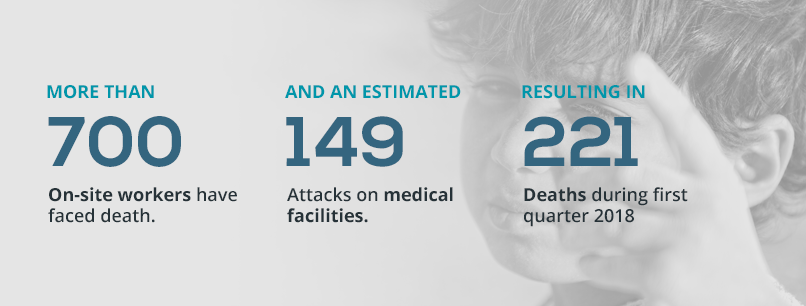

More than 700 on-site workers have faced death or dangerous situations since World Humanitarian Day’s establishment, and an estimated 149 attacks on medical facilities have occurred during first quarter 2018, resulting in 221 deaths.
As national and world conflicts worsen in war and armed conflict zones, creating more dire need for assistance than ever, both civilians and aid workers are in more danger than ever as well — that’s why the world needs to stand together this World Humanitarian Day to make sure assistance efforts won’t go unnoticed and will never go to waste.
Who Does World Humanitarian Day Honor?
Providing the humanitarian assistance struggling civilians and refugees need takes a host of interworking components — including people of all backgrounds, nationalities, skillsets and careers. These are some of the groups of people we honor and appreciate on World Humanitarian Day:
- Targeted Civilians in Conflict: From civilians in armed conflict zones and refugees escaping no longer safe homes to separated families, victims of gender and race violence, displaced people and those in desperate need of food, World Humanitarian Day is a time to recognize and reach out to those in need. Compassion, care and courage for our fellow humans is the aim of all our efforts.
- Humanitarian Workers: Nothing is nobler than the aid workers offering support, resources, sanitation, shelter, food, water and more to those in conflict and in need. By providing both desperately needed necessities and heartfelt concern to civilians in conflict zones, humanitarian workers offer the hope they need to reach ahead. And help doesn’t just come from outside sources. Despite the desperation and difficulty in conflict-ridden countries, a majority of relief workers come from the communities and countries where the conflict is worst, risking their lives for their neighbors.
- Health Workers: In areas where violence abounds but danger, poverty or lack of resources keep civilians and refugees from the medical attention they need, doctors, nurses and volunteers do everything they can to evacuate the wounded, attend to the ill and offer every medical resource possible despite dangerous surroundings.
- Government Employees: To those who dedicate their careers to humanitarian aid as extended efforts of the governments of concerned countries, we recognize the risk and effort involved in every day on the job, and we couldn’t imagine a more worthwhile pursuit.
- The Media: Journalists are also a key part of spreading awareness and put their lives at risk by spreading the truth from inside conflict zones.
- International and National Humanitarian Organizations: World Humanitarian Day is dedicated to appreciating the humanitarian organizations and nonprofit agencies — both national and international — that make it their mission to fund relief efforts, raise conflict and crisis awareness, and recruit volunteers and workers willing to risk everything to bring resources, help and hope to those in need.
Why Celebrate World Humanitarian Day?
Humanitarian work can be challenging. Assisting people in dire circumstances day after day can take a physical and mental toll on even the heartiest of spirits. While you know you are making a difference in people’s lives, the work involved becomes draining over the long term.
Humanitarian Day offers a way not just to show appreciation to these people but also to bolster their dedication. When you receive a reminder of why you are making these sacrifices, you may be more apt to continue pushing forward. You may feel a renewed commitment to the cause. You may get energized to enact new ideas and find different ways to address lingering problems. Recognition can lift morale for those in the cause.
Humanitarian Work: What Is Its Meaning?
The U.N. General Assembly, International Red Cross and Red Crescent Movement, and numerous other nonprofit and humanitarian organizations make it their mission to define, develop and distribute humanitarian help across the globe to reach those who need assistance in times of peril.
As a selfless, courageous and meaningful pursuit, humanitarian work is defined as action intended to relieve suffering, provide resources, save lives and maintain human dignity during and in the aftermath of natural disasters, attacks, war conflicts and other crises. In addition to providing immediate assistance, humanitarian work should strive to raise awareness of current or past conflicts to prepare for or prevent similar situations from occurring in the future.
Humanitarian projects should always be characterized and governed by the following humanitarian principles in order to avoid further conflict and offer the best assistance to those in need:
- Humanity: Humanitarian aid workers provide assistance and relief with no expectation of a profit or exchange — they do so out of respect and empathy for their fellow people and show humanity at all times. Humanitarian agencies and workers must address suffering wherever they find it and give priority to the most vulnerable.
- Impartiality: Despite current political or social disputes or issues in the conflict zone, humanitarian workers provide help to whoever is in need and show no bias for or discrimination against a particular side or group.
- Neutrality: Whatever the conflict or crisis and its complications, humanitarian work takes no side but the side of those in need — without any aims to further political or personal agendas or any association with either side of a dispute.
- Independence: Humanitarian work is independent and autonomous of political, religious, economic, military or any other aims.
By taking all these things into account, aid will be given and received in an equitable and fair manner. No one person is more deserving than another. Concern for others drives every decision in the humanitarian process.
Why Humanitarian Work Is Important
For Americans living in first-world conditions in a free democracy, it can be difficult to understand the daily struggles of civilians and refugees — men, women and children of all ages — in a disaster zone, area of armed conflict, or region where they’re violently targeted. Driven out of their homes, jobs and even their countries, these people struggle to meet the most basic needs for themselves and their families — from food, water, shelter and medicine to human rights like employment and education.
These are people just like us — people with the right to healthy, happy lives, children with the right to futures, families with the right to stay together — who are denied the ability to live fully and freely when they are caught up in conflict, exposed to violence, made victims of disasters or targeted by threatening groups.
As humanitarians and humans, it’s our job to make sure we reach out to our fellow humans, protect them from violence and injustice, and provide the resources and relief they need from crisis. Humanitarian work is crucial in rebuilding families, resolving conflicts, giving hope and opportunities to those in need, and strengthening our human bond of empathy and action. Together, we are strong.
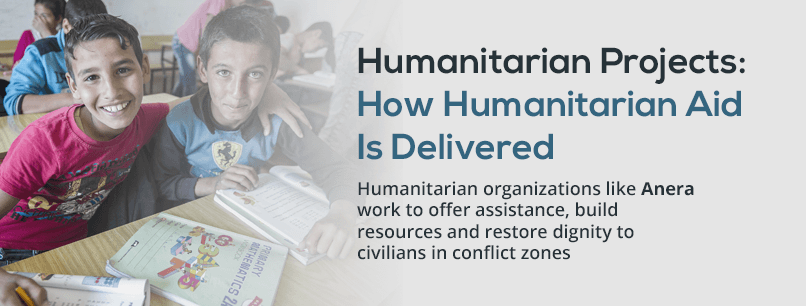

How Anera Delivers Humanitarian Aid
Humanitarian organizations like Anera work to offer assistance, build resources and restore dignity to civilians in conflict zones by rebuilding what our fellow humans need to have hope and discover their wellbeing again. With the help of our humanitarian workers and dedicated staff living and working in the areas we serve, we make it our mission to:
- Connect struggling communities to reliable water sources
- Rebuild and renovate schools
- Donate and deliver medicines
- Offer emergency relief
- Restore thriving agricultural sources
- Revitalize communities
By providing health, education, agricultural and emergency services as well as vital resources, we count on our humanitarian aid efforts to bring conflict-ravaged communities back to life and reinstill dignity in civilians.
Get Involved: What You Can Do To Make a Difference
Inspired to help those in need this World Humanitarian Day? Your care, compassion and drive to make a difference is just as essential as the courage of on-site humanitarian aid workers. If you’re dedicated to doing something for refugees, civilians in conflict and vulnerable communities, donate to Anera to help restore self-sufficiency and crucial resources to people in need. Donate today to make your mark.
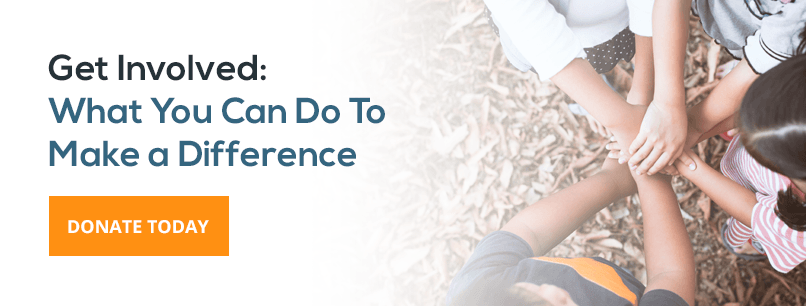

And you can continue to support humanitarian workers by getting involved yourself. And you don’t need to travel to another country, you can help right from your hometown. Here are some ideas:
Start locally: Look into humanitarian or volunteer organizations in your area. You can usually find plenty of opportunities to help the people in your area, such as working in a food bank or hosting fundraisers to raise money for various causes. Whether it’s focused on education, homelessness, environmentalism, refugee support or another cause that helps other humans, you’d be doing a great service.
Support organizations: Consider donating, creating awareness or volunteering your time for humanitarian organizations. Something as simple as sharing a post from a humanitarian organization can inspire dozens of donations. For something bigger, consider hosting a fundraiser or collecting resources — see what your local community needs and what you have to offer. Are you good at organizing? Take on the fundraiser. Are you more of a people person? Try to do something helping people in person, such as by serving people in a soup kitchen. Use your skills to your advantage.
Foster a humanitarian mindset: Humanitarianism is all about helping others. If you carry this mindset with you, you can do good every day. Bring the humanitarian ideals with you to work and your friendships. If it’s okay with your boss, put out flyers or post requests for donations at work. Talk to your friends about your efforts next time you go out for drinks. You can spread the effect of a humanitarian mindset in many ways, bringing kindness and altruism wherever you go.
Learn about humanitarian crises and the organizations responding: Often, the first step to making a positive impact is learning about what is going on in the world, and maybe even right in your community.
Get Involved With Anera
To support humanitarian workers, consider getting involved with Anera. We’re a nonprofit organization delivering assistance, resources, sustainable development and other humanitarian aid to the people of Palestine, Lebanon and Jordan. Our staff live and serve in these communities, helping in areas like health, access to food and water, education and emergency services.
There are many ways you can help our devoted team this year, such as one-time or monthly donations, fundraising and attending an event hosted near you. Learn about all the ways you can help the Anera team and communities in the Middle East or donate today to show your support.
The 2018 World Humanitarian Day Theme: #NotaTarget
This August, we’re championing the World Humanitarian Day campaign #NotATarget to revisit the very real struggle of millions of civilians and humanitarian aid workers in peril each day as they strive to escape armed conflict, provide relief and reach toward a better future. Civilians are not a target. Humanitarian workers are not a target. By standing together in support, we can all aid in efforts to protect and empower all those in conflict zones.
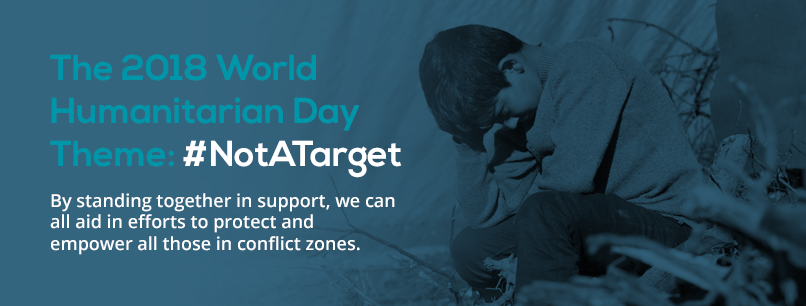

OUR BLOG
Related
In this log, Anera provides regular updates on unfolding hostilities in Lebanon and our response efforts. Our community makes our emergency response possible. Please consider donating today. Our team is working around the clock to expand this assistance, but we…
In this log, Anera provides updates on unfolding war in Palestine and our response. Please stay tuned here for the latest information. To subscribe for weekly updates via SMS on our response in Gaza, text GAZA to 1-866-549-0055. Questions? See…
You can show your support for families affected by unimaginable hardships and violence in Palestine and Lebanon by donating to Anera this GivingTuesday, December 3. All donations will be DOUBLED to have 2X the impact on refugees and vulnerable communities…
